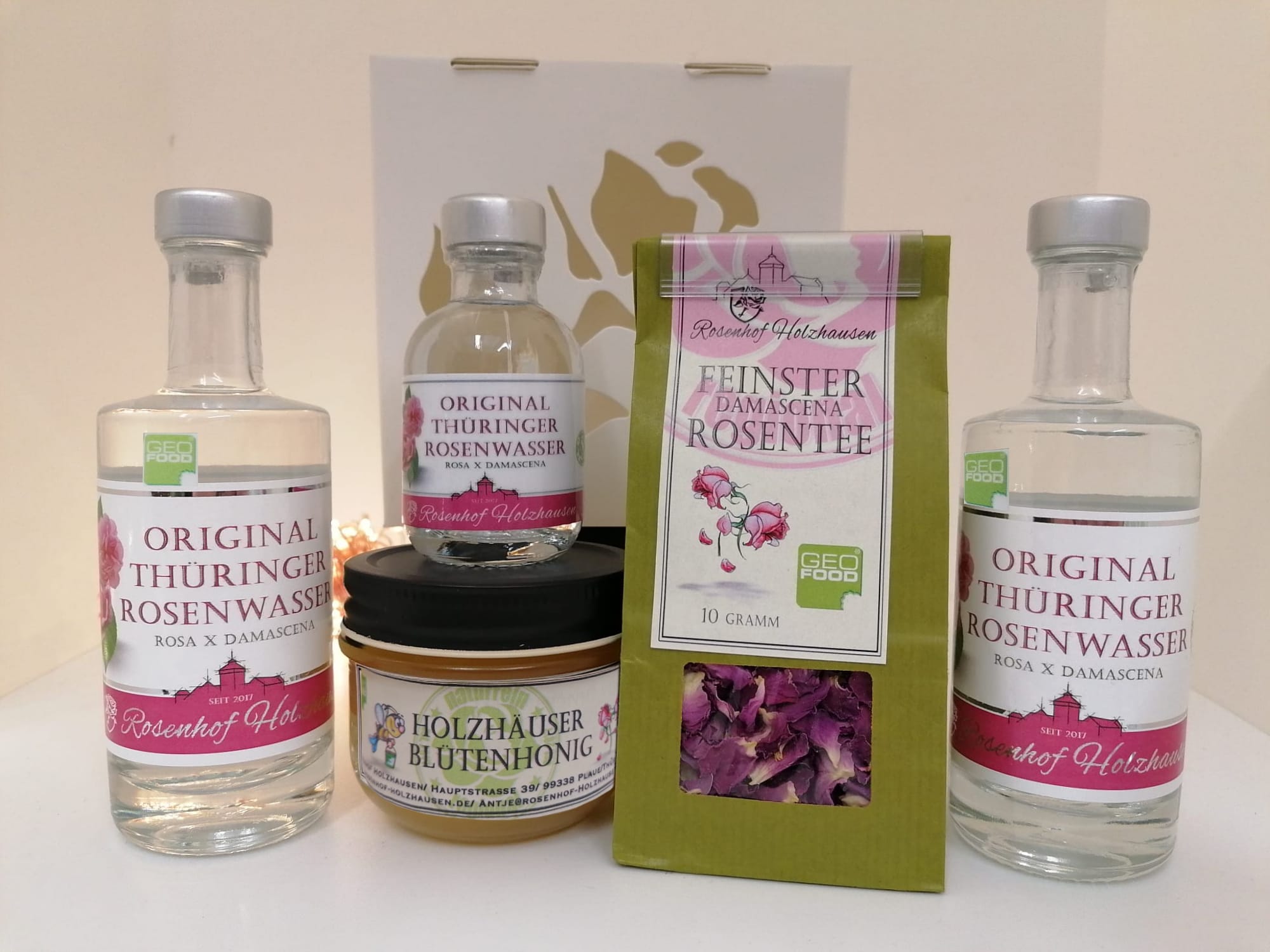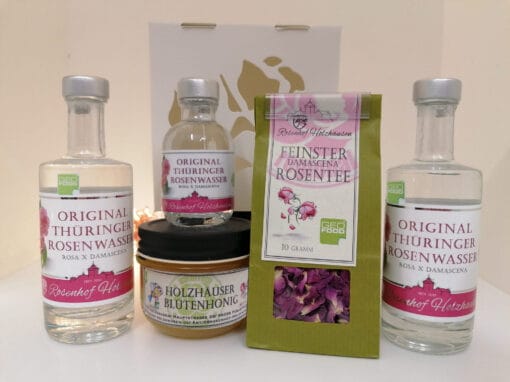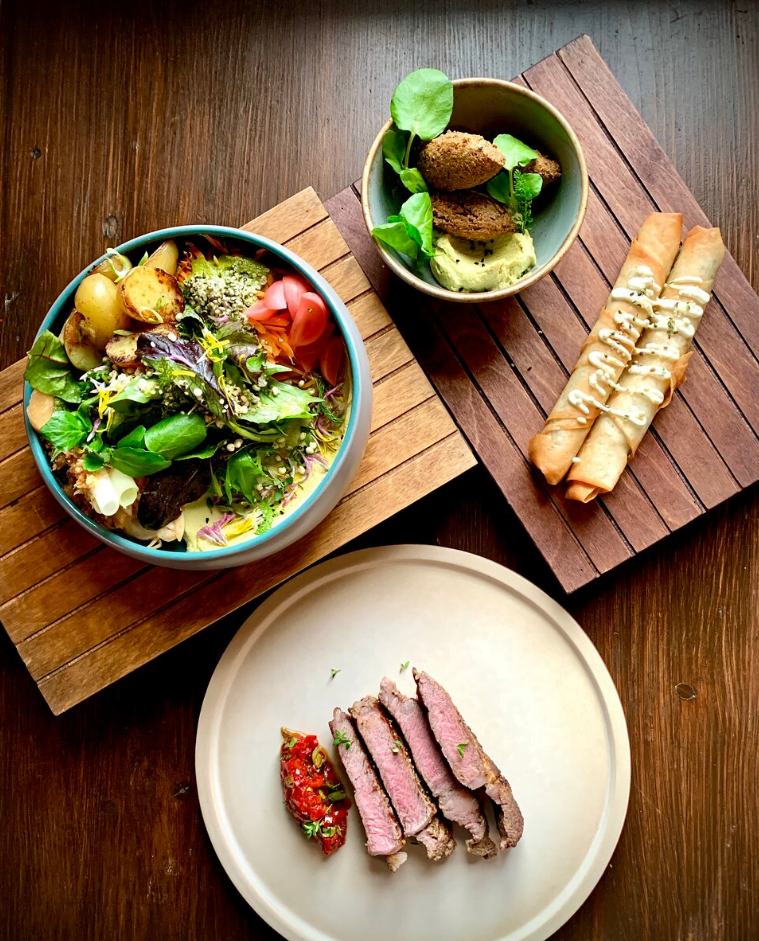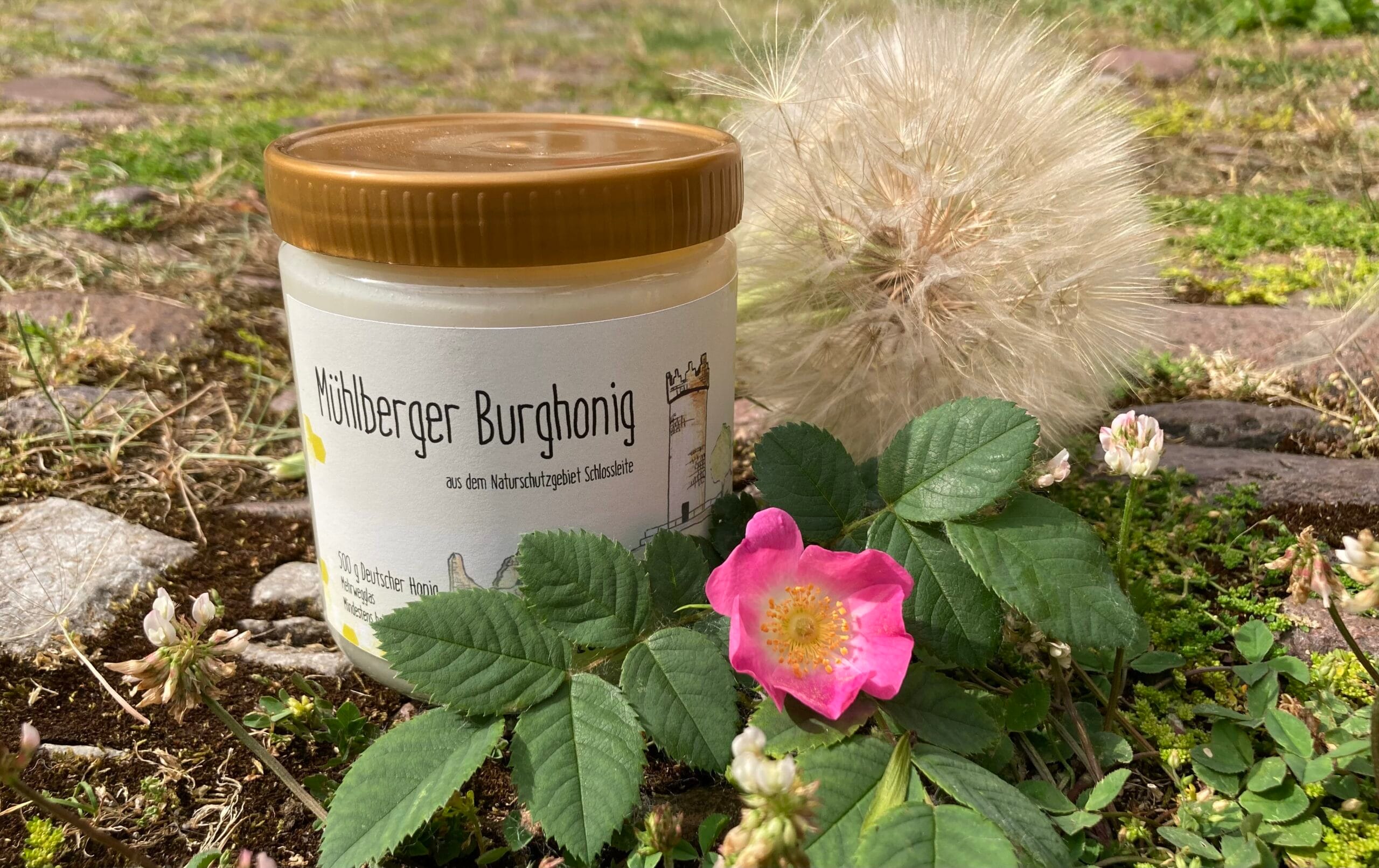Description of the Company
Nestled in the setting of the UGGp Thuringia Inselsberg-Drei Gleichen, under the medieval Wachsenburg Castle, the Rosenhof Holzhausen cultivates damask roses to produce rose water and in the last years its GEOfood offer was implemented with tea and honey made 100% with ingredients from the Geopark area.
Antje Kochlett and Christian Beer’s idea of growing this type of rose typical of warmer regions in the heart of Germany seemed like a difficult challenge, but thanks to large agricultural expertise, a short producers chain and a well-planned marketing strategy the Rosenhof has become a well-known reality in just 7 years.
The sustainability of the products is also remarkable, strongly linked to the the regional product ” Original Thüringer Rosenwasser” (Thuringian rose water) is processed into many products.
Description of the Product
If there are places where you can feel like in a fairy tale, a visit in June to the field of the Rosenhof Holzhausen with 2000 damask roses (Rosa × damascene) is one of them. It is not easy to imagine that this colorful and fragrant field is located on a substrate of gypsum and sandstone (Gipskeuper) formed more than 220 million years ago in a very arid and dry environment…. Nestled in the setting of the UGGp Thuringia Inselsberg-Drei Gleichen, under the medieval Wachsenburg Castle, the Rosenhof Holzhausen cultivates damask roses to produce rose water and in the last years its GEOfood offer was implemented with tea and honey made 100% with ingredients from the Geopark area. Antje Kochlett and Christian Beer’s idea of growing this type of rose typical of warmer regions in the heart of Germany seemed like a difficult challenge, but thanks to large agricultural expertise, a short producers chain and a well-planned marketing strategy the Rosenhof has become a well-known reality in just 7 years. The sustainability of the products is also remarkable, strongly linked to the the regional product ” Original Thüringer Rosenwasser” (Thuringian rose water) is processed into many products. It is particularly aromatic because the oil content remains in the rose water and is not separated as an extra product, as is the case with other productions. The Thuringian rose water is also processed as part of other products such small sweets, marmelades and liquors.




